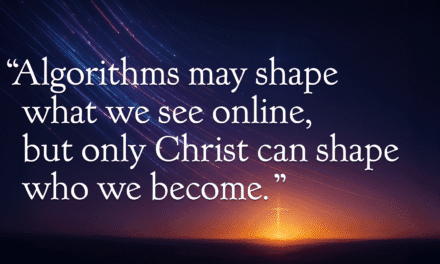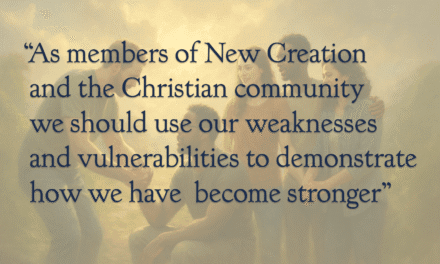It doesn’t take much to go viral anymore. A fleeting moment on a stadium screen, a souvenir fight in the stands, or a snap decision at a tennis match can suddenly transform ordinary people into internet villains. Dave Eggers warned us about this in his novel The Circle. In it, a tech company convinces the world that radical transparency will create a better society — but the result is something darker: privacy disappears, groupthink dominates, and those who fall out of line are shamed or erased.
We may not live in Eggers’ dystopia, but recent events remind us how close it can feel. In just the past few weeks, we’ve watched a CEO caught on the Coldplay Kiss Cam, another executive filmed snatching a signed tennis cap from a child, and a Phillies fan demand a home run ball from a little boy celebrating his birthday. Each clip spread across social media in minutes. Each person became a symbol of selfishness or betrayal. And each paid a heavy price.
This is cancel culture at its most familiar: a flash of exposure, a tidal wave of judgment, and consequences that ripple outward far beyond the original act.
But what if we viewed these stories through a different lens — not the lens of cancel culture, but through the eyes of Jesus?
The Kiss Cam and the Stones
When the Kiss Cam at a Coldplay concert landed on Andy Byron, a CEO sitting with his company’s chief people officer, the crowd did what stadium crowds always do — they egged on the couple until they kissed. Chris Martin, the lead singer, even joked about them being “shy.” But the laughter quickly faded when viewers realized the woman in his arms wasn’t his wife.
The internet erupted. The video spread, his company put him on leave, and divorce soon followed. For weeks, he wasn’t Andy Byron; he was “the Coldplay Kiss-Cam Guy.”
My first reaction matched the crowd’s: anger, disgust, judgment. But then that inner conflict stirred again. Yes, betrayal has consequences — but should a marriage failure be turned into a global spectacle? Does the mockery piled on top bring anyone closer to healing?
This scene echoes John’s Gospel, when religious leaders dragged a woman caught in adultery before Jesus. The crowd gathered, stones in hand, ready to enforce judgment. Jesus didn’t excuse her actions, but He also didn’t join the mob. Instead, He said, “Let the one without sin cast the first stone.” One by one, the stones fell to the ground amid the silent crowd.
If Jesus stood in that stadium, He wouldn’t excuse the betrayal. But He would also remind us that none of us are free from shadows. That judgment is easy, but grace is what heals.
The Hat Snatcher and Zacchaeus
At the US Open, Polish tennis player Kamil Majchrzak signed a cap for a young boy named Brock. As the boy reached for it, Piotr Szczerek — a CEO seated nearby — snatched the hat and stuffed it into his bag. Cameras captured everything.
The outrage was immediate. Social media branded him “the most hated man on the internet.” His company’s ratings collapsed. His name became synonymous with selfishness.
He later apologized, returned the hat, and admitted it was a “huge mistake.” He claimed he thought it was meant for his sons, who had asked for autographs earlier. Maybe that’s true. Maybe it wasn’t. Either way, the internet didn’t care. The clip had already defined him.
Again, I feel the tension. It’s tempting to dismiss him as greedy. But I also wonder: what if it really was a misunderstanding in the excitement of the moment? Does one selfish grab deserve a lifetime of internet infamy?
His story reminds us of Zacchaeus, the tax collector. Everyone hated him because he had made a living off the backs of others. Yet when Jesus saw him, He didn’t join the chorus of anger. He looked up and said, “Zacchaeus, I’m coming to your house today.” That act of grace changed Zacchaeus completely. He promised to repay everyone he had cheated, fourfold.
Cancel culture freezes people in their worst moment. Jesus insists on the possibility of change. Accountability, yes — but always with a door left open for transformation.
The Birthday Ball and the Child
Then came the Phillies game. A father caught a home run ball and handed it to his son Lincoln as a birthday gift. The boy’s joy was immediate. But within moments, a woman in Phillies gear demanded the ball, claiming it was hers. To avoid a scene, the father gave it up. Lincoln’s birthday gift vanished.
The internet was merciless, dubbing her “Phillies Karen.” Memes spread, rumors circulated, and social sleuths tried to track her down.
I can understand the anger. Watching an adult rob a child of joy feels deeply wrong. But here again, I feel that tug of conflict. Yes, she acted entitled. Yes, she made a child cry. But does that one moment deserve worldwide humiliation? Does it mean she should be reduced forever to “Karen”?
What I love about this story is the compassion that followed. Marlins staff noticed Lincoln’s disappointment and quickly brought him memorabilia during the game to lift his spirits. After the final out, Harrison Bader met him personally, gifting a signed bat. The kindness of others repaired what entitlement had broken.
And here, Jesus’ words seem especially clear: “Let the little children come to me; do not hinder them.” Jesus would have stood with Lincoln, protecting his joy over an adult’s pride. And He would have reminded the rest of us that sometimes the best response isn’t vengeance but restoring what was lost.
A Different Way
What ties all three stories together isn’t just the viral humiliation. It’s the misuse of power — the power of position, wealth, entitlement. Cancel culture responds with exposure and judgment. And if we’re honest, we all get caught up in it too. Outrage feels good for a moment. But outrage rarely leads to change.
Jesus showed a different way. “Whoever wants to be great must be your servant.” He confronted wrongdoing without hesitation, but He always left space for healing. He protected children, challenged the powerful, and invited even the corrupt to turn toward change.
Cancel culture says, “Once shamed, always shamed.”
Jesus says, “Go and sin no more.”
The Invitation
These viral incidents remind us how fragile reputations have become in a digital age. A careless act, a selfish impulse, even a misunderstanding can ignite a firestorm. Yet they also remind us of a deeper truth: we don’t have to live by the logic of cancellation.
I keep coming back to my own conflict. I want justice, and I want accountability. But I also know that I stumble. I know there are moments I wouldn’t want broadcast to the world. And if I’m honest, I hope others would show me mercy if they saw me at my worst.
Maybe that’s where the invitation lies. We can call out wrongdoing without erasing people. We can defend children without destroying adults. We can demand truth without forgetting mercy.
Cancel culture asks, “How quickly can we condemn?”
Jesus asks, “How can we redeem?”
That is the better way. That is the way of Christ.









 Our Latest Updates on
Our Latest Updates on
